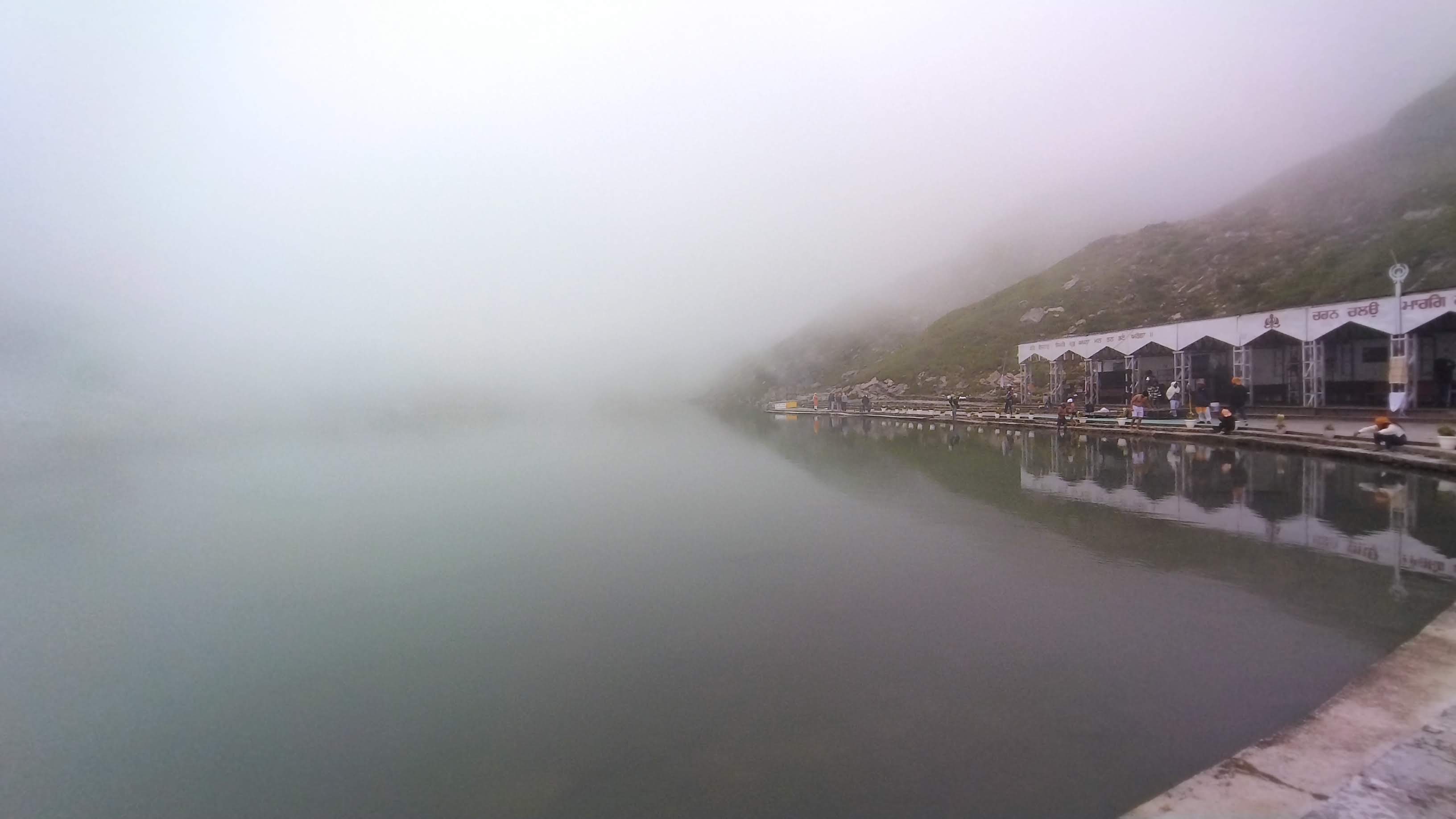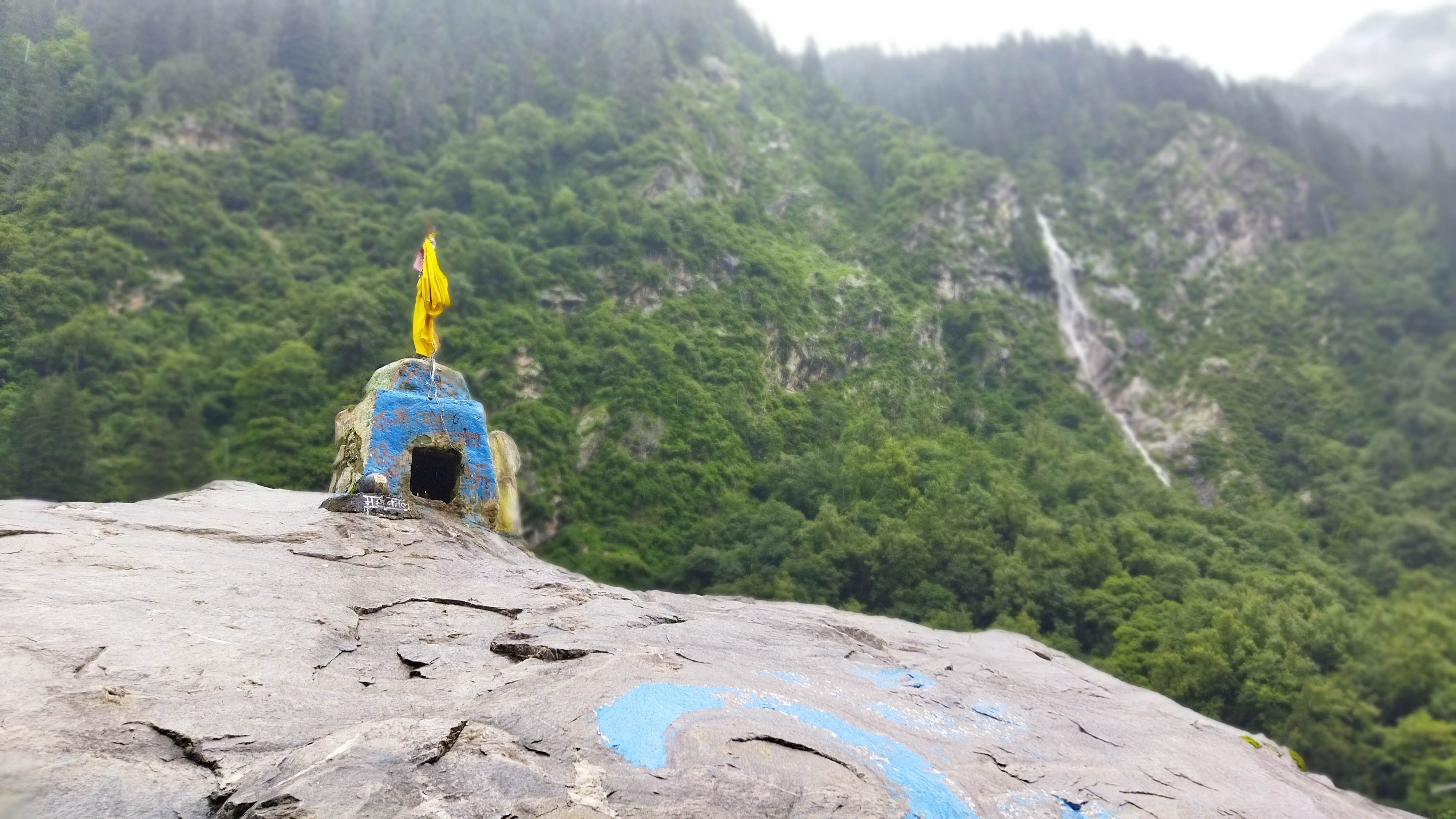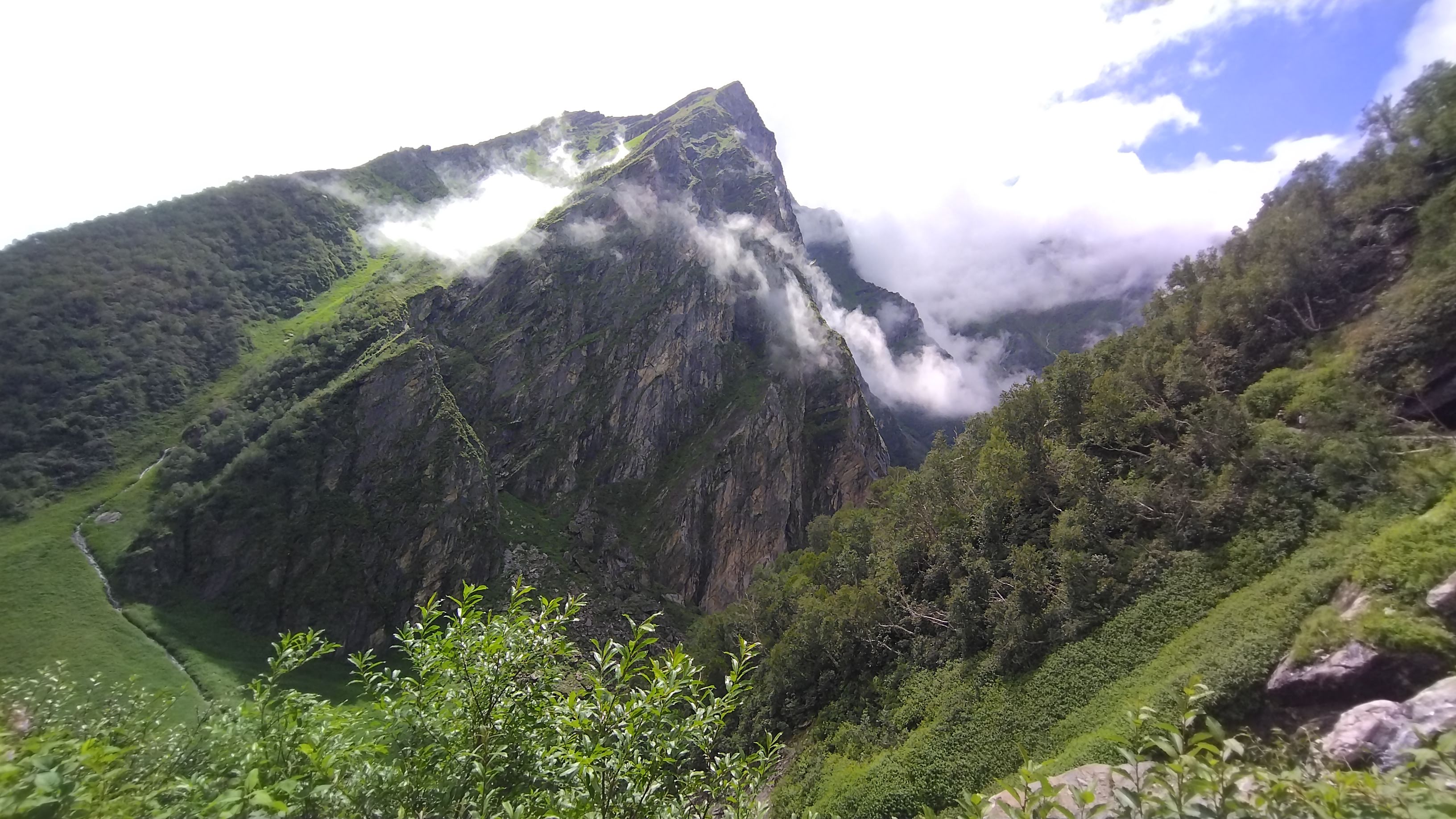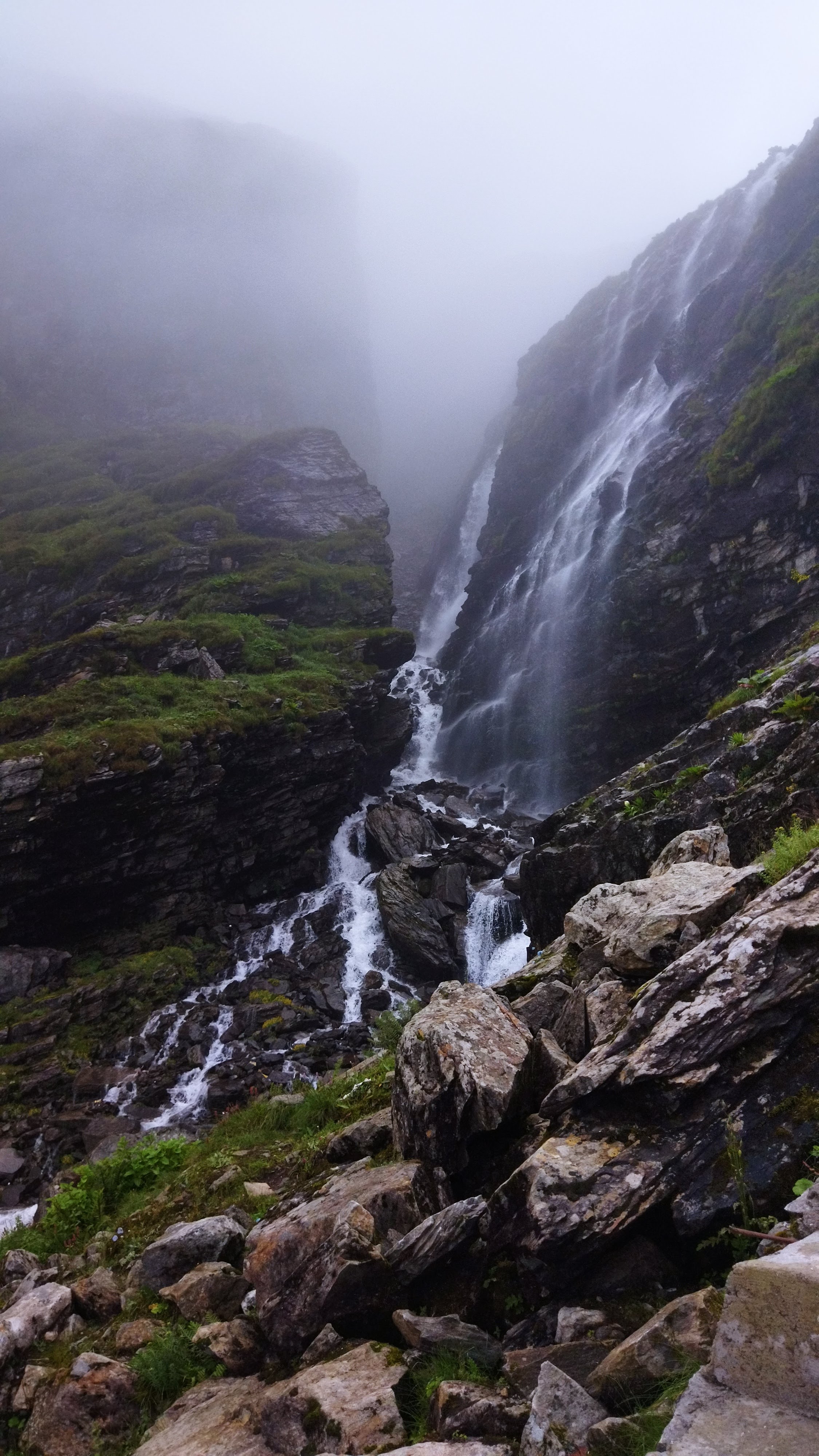A scattering of thoughts.

And then there's Hemkund.
Something about the arduous climb up — no not necessarily a trek but arduous nevertheless — has made the lake take on newer, larger proportions of importance at this moment. At first, the lake is not visible because a thick, incoming fog has smeared itself over the lake and its fringes. A little yonder to the left, the lake is wide open, the mist and the settling cloud yet to traverse and cover that portion. And in this pocket is where I find myself sitting, all by myself thanks to the graciousness of my trek partner who has meandered away. For a fistful of moments, there's just me and the lake and a soft, dense, grey cloud rushing in slow-motion to wrap me and everything about me. In my ears, the world has gone silent. A deep breath. And then, tears.
It is but a lake atop a mountain, yes. And yet, in this culminating moment, it seems tremendously more.
—

I watched a sparrow at Badrinath. Sparrows are virtually extinct where I live in the plains down south. It wasn't two seconds since it landed on a thin metal wire protruding from the edge of a concrete structure that it took off again, hunting an insect that had just flown across its line of sight. A good minute of aerial maneuvering ensued and I guess the sparrow must have caught the insect. And then I wondered: how did Sankaracharya make the trek to Badrinath back in the day?
Cement roads, concrete footpaths, large varieties of winter clothing, plethora of food stalls and watering holes exist today and have existed for about half a century now. And yet, it's not an easy climb or drive. My mind imagined scenes of him and his companions walking slowly, but relentlessly, perhaps accompanied by the ancestors of the same old mules that I saw everywhere, along foot-wide pathways nestled between large pines and thick shrubs and the constant tone of water gushing down Alakananda. The path must have been rocky, muddy, grassy at times. No trek shoes had been invented. The infrequent rain would've found his skin. And there would've been far more animals roaming about in the wild back then. The imagined journey made me shrink - what drove these mortals to the literal and metaphorical pinnacles of spacetime crossing chasms of the unknown and the unseen, and reaching them, and staying there for months or years and producing work that has immortalized them?
That old, bearded Sikh at the foothill in Pulna, about to embark on his Hemkund Sahib climb on foot, refusing the calls for using a mule or a human to carry him up... his feat is going to be no less than Sankara's in some sense. Perhaps, more.
—

Between towering peaks of the Himalayas, surrounded by literal wilderness on all sides, smack in the middle of a trail, the cellphone begets excellent reception. 4G, no less. Great connectivity. My compatriots disapprove of this - what's the point of being on a Himalayan trek if you're still surrounded, nay engulfed, by the very thing you were trying to get away from?
My former self would've agreed. Now I realize that there's an entire infrastructure existing almost precariously here and communication lines are required to keep the people safe as best as possible. Airplane mode is a swipe and tap away for the rest of us.
—

On any post-monsoon Himalayan trek, wherever you go, you will be accompanied by water — as a stream, as a waterfall many miles away, as the river flowing menacingly down below or by the side, as rain, as a glacier along the way... you name it. Mountain faces are streaked with dozens of thin, milky lines of water, making for picturesque scenes that your eyes cannot have enough of.
Here's where water seems in abundance. And always flowing. Always going somewhere. Always on the move. It may disappear beneath the rocks, but it has not stopped, not for a moment, to ponder about life. It marches on. And it surfaces again, sometimes miles away, to gush forth with immense momentum and determination.
When you say, "life finds a way", remember what it really means — "water finds a way."
—

It is up to you to figure out what kind of a trekker, traveler you are.
This has been the hardest to articulate in years. But I think I've finally arrived at some simplication of it.
There are those who travel with their self at the center of their being - all ensuing experiences mere caterers to their getaway desires, wishes, hopes and whatnot. These are the ones that have much to talk about, make merry and do social things, sometimes over the sounds of the beautiful universe they are in, as if they're oblivious to it.
Then there are those who travel to sacrifice and bury their self at the altar of the universe around them. These are the ones stunned into silence by every little thing of beauty; these are usually the ones who seek the unnoticed and the unheard.
Someone looked at the flood of a river below us and quipped: "I am like this river — amidst all this silence, I'm the only vibrant sound."
I looked around at the vast, panoramic expanse. The river wasn't the only music.
When you allow your soul to settle, you'll hear the mountains speak and the clouds whisper.